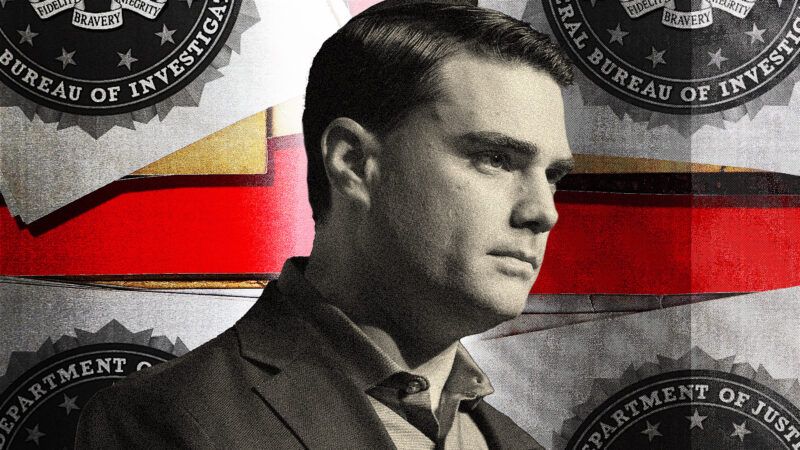The FBI Was Monitoring Student Protests Against Ben Shapiro
A newly-obtained intelligence memo shows that the feds took a keen interest in Trump-era campus speech controversies.

The ongoing student protests over Israel and Palestine have become the center of a national controversy, with members of Congress calling for National Guard deployments and terrorism financing investigations against the protesters. But a few years ago, the federal government was interested in a very different sort of campus controversy: whether right-wing journalist Ben Shapiro should be allowed to speak.
In October 2017, the FBI prepared a "tactical intelligence report" on Shapiro's upcoming speaker event at the University of California, Los Angeles. The bulletin was released last week in response to a Freedom of Information Act (FOIA) request for FBI documents on the Black Lives Matter movement, and posted to the public records platform MuckRock by journalist Jordan Lassiter.
It's unclear what FBI agents actually dug up. A cover page says that the memo "is based on FBI, DOJ [Department of Justice] and other law enforcement databases, as well as open source research conducted from 26 October 2017 to 27 September 2017." However, the FBI redacted most of the content before releasing it.
Only one line, under the header "Black Lives Matter," was left uncensored: "Protesters from the 'No Hate Speech' movement have shown up at most of the Ben Shapiro speaking events in the past, including at the UC Berkeley and University of Utah speaking engagements in September 2017."
The term "No Hate Speech movement" appears to be a catch-all for left-wing groups protesting right-wing campus speakers. For example, the protest at UCLA was organized by the Young Democratic Socialists and Students for Socialism, while the protest in Utah was organized by a coalition that included Students for a Democratic Society and the Latino rights group Brown Berets.
None of these organizations responded to Reason's request for comment. Not that there was much to say: The protest against Shapiro at UCLA turned out to be small and nonviolent.
The danger of campus protests may have been brought to the feds' attention by local police. On September 6, 2017, a detective from the Berkeley Police Department requested two analysts from the Northern California Regional Intelligence Center, a "fusion center" set up by the Department of Homeland Security, to help set up a 24/7 command center during the upcoming protests.
"We have on-going demonstrations with ANTIFA/Black Bloc people, which have repeatedly shown a propensity of violence. We are expecting large scale, violent demonstrations" against speeches by Shapiro and the right-wing pundit Milo Yiannopoulos, said the memo, which Reason obtained from BlueLeaks, a trove of leaked fusion center documents.
Berkeley police weren't wrong to expect violence. A previous speech by Yiannopoulos had been canceled in February 2017 due to a riot by left-wing protesters. Then, in April, both far-left and far-right activists showed up in Berkeley to fight.
The September event at Berkeley with Shapiro, however, went smoothly. Under heavy police presence and protected by over half a million dollars in security measures, Shapiro spoke to hundreds of audience members while hundreds of protesters gathered off campus. A few demonstrators were arrested for carrying a banned weapon or assaulting a police officer.
Meanwhile, Yiannopoulos' planned "Free Speech Week" at Berkeley in September fell apart due to organizer incompetence. Reason's Robby Soave described a "sad, aborted" event with a tiny crowd that lasted for only a few moments while far-left and far-right activists spoiled for a fight outside.
Shapiro's appearances at the University of Utah and UCLA were even quieter. Police in Salt Lake City broke up two fights before Shapiro's event outside the venue, and a few audience members walked out in protest after Shapiro began speaking. There were no arrests at UCLA. The campus speech controversy, it seems, was already old and boring news.
Preparing for violence was probably still a sensible move by local police. But the FBI's involvement may have been a bit of overkill.


Show Comments (33)